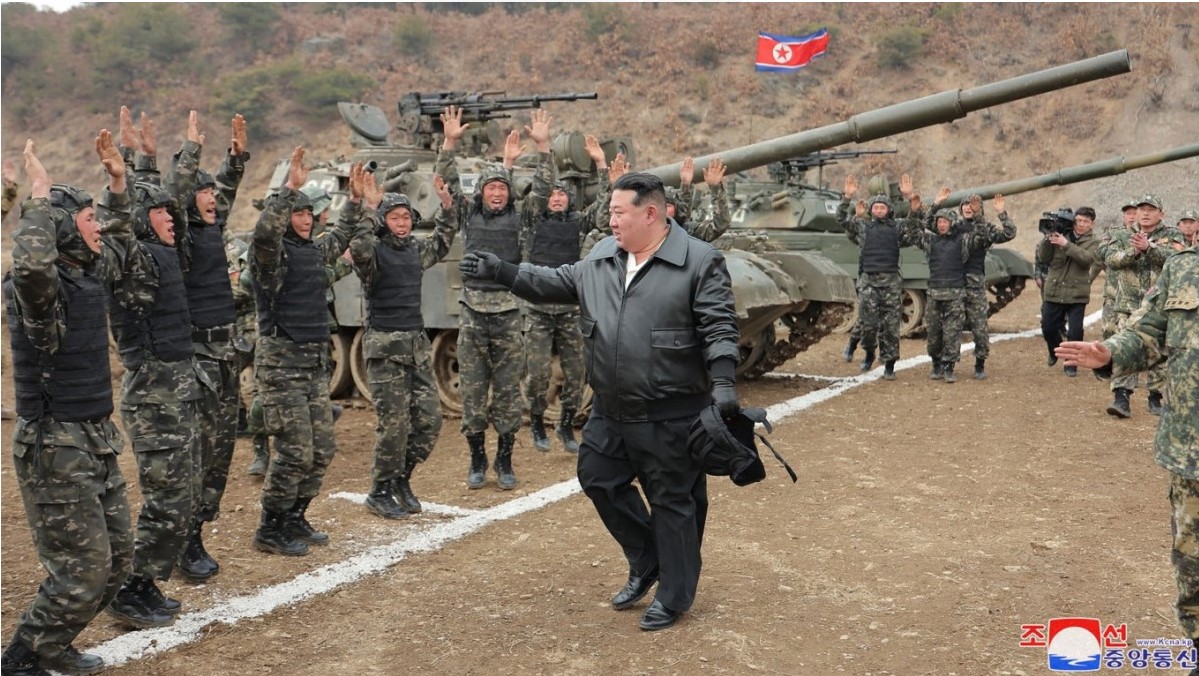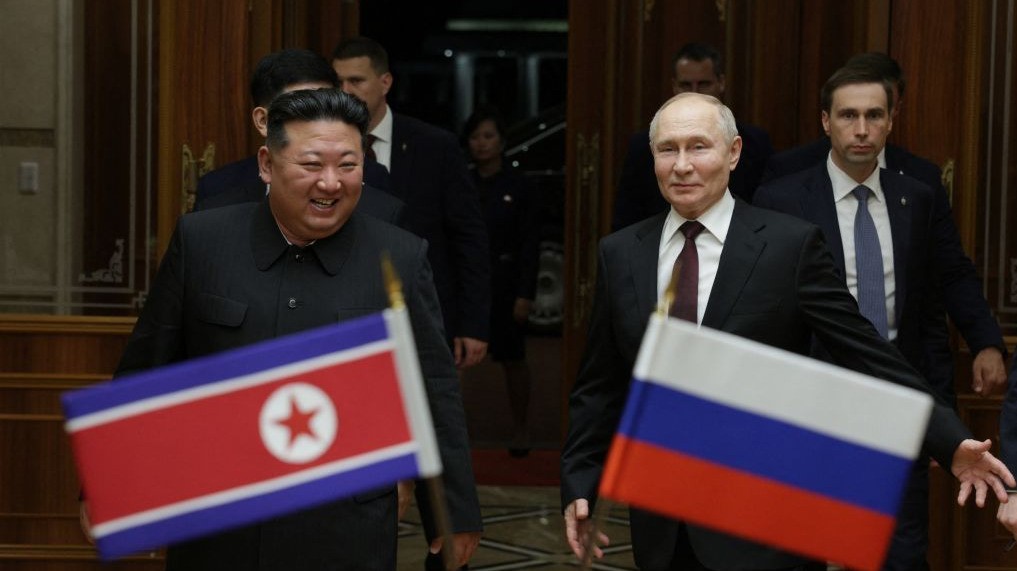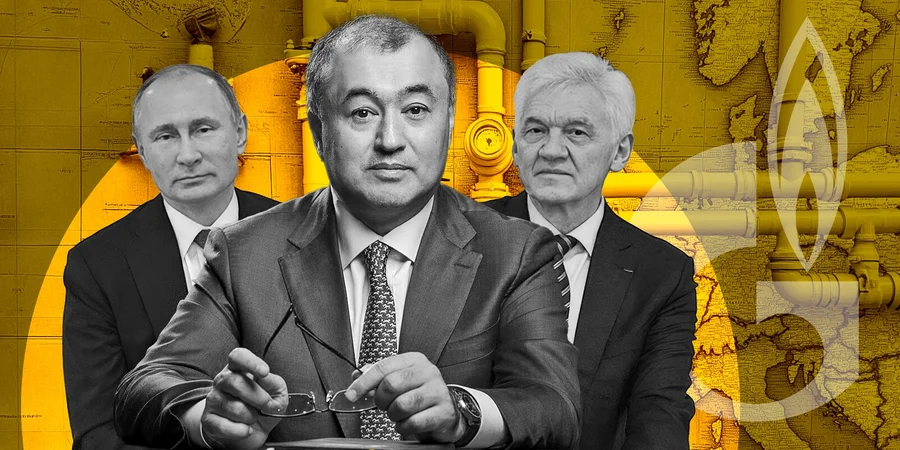North Korea, despite significant casualties among its soldiers, continues to push for large-scale aid from Russia. Despite the fact that soldiers of the Korean People’s Army (KPA) are dying on the battlefield, Pyongyang is using the sacrifices of its soldiers as leverage to gain military, diplomatic and economic support. This is becoming a serious burden for Russia, which is already facing economic difficulties.
The personal ambitions of North Korea’s leader:
Kim Jong-un, in helping Russia in its war against Ukraine, is pursuing his personal ambitions and strategic goals. His motives can be categorised into three key aspects: consolidation of power, economic gain and military advancement.
1. Consolidation of power and international status
Kim Jong-un seeks to strengthen his legitimacy and authority both domestically and internationally. Cooperation with Russia gives him the following opportunities:
– Demonstration of power and determination: Participating in an international conflict on the side of a major power such as Russia allows Kim to show his people and elite that his regime plays an important role on the world stage.
– Diplomatic support: Russia, as a permanent veto-wielding member of the UN Security Council, can defend North Korea’s interests in international organisations, which strengthens Kim’s
2. Economic benefit
North Korea is under severe international sanctions, which seriously complicates its economic situation. Russia’s assistance gives Kim access to:
– Resources: Russia can supply food, fuel, and other necessary goods, helping the regime survive chronic shortages.
– Diversifying ties: Co-operation with Russia reduces North Korea’s dependence on China, its main trading partner. This gives Kim more freedom in choosing his foreign policy moves and strengthens his negotiating position.
3. Military and technological progress
Kim Jong-un is interested in strengthening his country’s military power, especially in the face of constant threats from outside forces. By helping Russia, he can count on:
– Access to technology: Co-operation with Russia opens up opportunities to gain advanced military technology or expertise, such as in missile or satellite systems.
– Military modernisation: Sharing expertise or supplying equipment can help North Korea improve its armed forces, which is one of Kim’s priority goals.
In addition, North Korea is actively using its soldier losses as a tool to gain favours from Russia. Some of the main demands Pyongyang can make include:
1. Technology to improve nuclear capabilities
One of the main demands is to obtain technology to improve nuclear weapons. North Korea seeks not only to develop its nuclear forces, but also to be recognised as a nuclear state, which allows it to significantly strengthen its position in the international arena.
2. Technology for submarines and rocket engines
Pyongyang is interested in technologies that will develop its submarine fleet and improve missile technology. These technologies are an important part of the DPRK’s military programme, especially to further strengthen its defence power.
3. High-tech space technology
North Korea has also shown interest in space technology, including satellite technology, which will help the country for military and strategic purposes.
4. Advanced combat aircraft
The DPRK is keen to obtain modern combat aircraft such as the Mig-29 and Su-27, which will greatly enhance its air power and defence capabilities.
5. Technologies for unmanned aerial vehicles (drones)
Unmanned technologies play an important role in modern armed conflict. North Korea may require technology from Russia to develop and produce drones, which will be an important part of military operations.
6. Energy resources
One of the most important requirements could be the supply of oil. North Korea may demand 1 million barrels of crude oil from Russia, which will help the country solve its energy dependency problems.
7. Food and crops
Pyongyang will seek food supplies such as grain and other crops, which will provide the country with the necessary resources to maintain economic stability.
8. Labour Force
Another requirement could be the stationing of North Korean workers in Russia. This would provide Pyongyang with additional foreign exchange earnings and Russia would assist in labour functions at various enterprises.
For Kim Jong-un, Russia’s assistance in the war against Ukraine is not just an act of solidarity, but a deliberate move that fulfils his personal ambitions. He seeks to consolidate his power, ensure the regime’s economic stability and make military progress. In return, he receives diplomatic support, resources and technology, making this co-operation mutually beneficial from his point of view.
With severe international sanctions and economic pressure, North Korea is in a dire situation. However, in 2024, the country’s economy began to recover thanks to support from Russia, which supplies food and oil. These supplies have helped stabilise the country’s economic situation, although they also require significant financial outlays from the Russian side.
Russia itself is experiencing economic problems, including high inflation, international sanctions and economic isolation. Nevertheless, the Kremlin is forced to comply with North Korea’s demands, as cooperation with the country is of important strategic importance, especially in the context of the current military conflict in Ukraine and global political tensions.
North Korea, which is using its participation in the war as leverage, continues to insist on providing it with modern technology, energy resources and other material benefits, which places an additional burden on the Russian economy.
Thus, North Korea is actively using its sacrifices and participation in the conflict as a tool to obtain large-scale support from Russia. In response, Russia faces the need to meet these demands despite economic hardship, as support for the DPRK is essential for stability in the region and as part of a broader geopolitical strategy.






